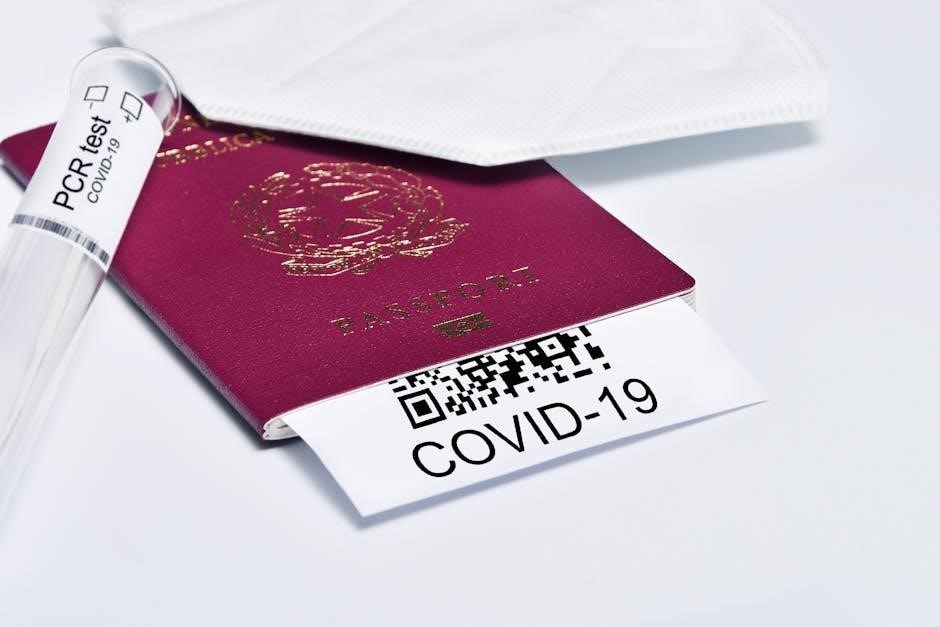Nuclear Medicine CPT codes 2023 provide standardized codes for diagnostic procedures, imaging, and radiopharmaceuticals, ensuring accurate billing and reimbursement in medical practices.
Overview of CPT Codes in Nuclear Medicine
CPT codes for nuclear medicine are standardized codes used to describe diagnostic and therapeutic procedures, ensuring accurate billing and insurance reimbursement. These codes cover a wide range of services, including imaging scans, radiopharmaceutical administration, and specialized diagnostic tests. The codes are organized into specific ranges, such as 78012-78999, which are dedicated to diagnostic nuclear medicine procedures. Common codes include 78226 for hepatobiliary imaging, 78300 for bone and joint imaging, and 78830 for brain scans with SPECT/CT. These codes are updated annually to reflect advancements in technology and clinical practices, ensuring precise documentation and compliance with medical billing standards.
Importance of CPT Codes for Billing and Reimbursement
CPT codes are essential for accurate billing and reimbursement in nuclear medicine, ensuring that procedures and services are properly documented and compensated. These codes standardize the reporting of diagnostic and therapeutic services, reducing errors and facilitating efficient insurance claims. Proper use of CPT codes ensures compliance with Medicare and other payer requirements, avoiding delays or denials in reimbursement. For example, codes like 78226 for hepatobiliary imaging or 78830 for brain scans with SPECT/CT must be accurately reported. Incorrect coding can lead to financial losses, making it critical to stay updated with the latest guidelines and revisions in the 2023 CPT manual.

Structure and Organization of Nuclear Medicine CPT Codes
Nuclear Medicine CPT codes are organized into specific ranges, such as 78012-78999, categorizing diagnostic procedures, imaging, and therapeutic services for precise billing and coding purposes.
Range of CPT Codes for Diagnostic Nuclear Medicine Procedures (78012-78999)
The CPT code range 78012-78999 encompasses various diagnostic nuclear medicine procedures, including imaging and scans. These codes cover hepatobiliary imaging (78226), bone and joint imaging (78300, 78306), and neurological imaging like brain scans with SPECT/CT (78830). Each code specifies a particular procedure or service, ensuring accurate billing and reimbursement. This range is essential for standardized reporting of nuclear medicine services, helping practitioners and billers efficiently document and code diagnostic interventions.
HCPCS Codes for Radiopharmaceuticals and Supplies
HCPCS codes are used to report radiopharmaceuticals and supplies essential for nuclear medicine procedures. These alphanumeric codes cover items like Technetium Tc-99m (A9537), which is a common radiopharmaceutical. HCPCS codes ensure accurate billing for drugs and materials used in imaging studies. They complement CPT codes by specifying the substances and supplies involved, ensuring comprehensive reimbursement. Proper use of HCPCS codes is crucial for compliance and accurate billing in nuclear medicine services, alongside CPT codes that describe the procedures themselves.
Key Updates in Nuclear Medicine CPT Codes for 2023
The 2023 Nuclear Medicine CPT codes introduce new codes for emerging imaging technologies and revise existing ones to enhance clarity and accuracy in billing practices.
New Codes and Revisions in the 2023 CPT Manual
The 2023 CPT manual introduces new codes for advanced nuclear medicine imaging procedures, including updates to radiopharmaceutical codes like A9537 for Technetium Tc-99m. Revisions clarify billing for complex scans, such as hepatobiliary imaging (CPT 78226) and bone/joint imaging (CPT 78300, 78306). New codes address emerging technologies, ensuring precise reporting of diagnostic and therapeutic nuclear medicine services. These updates aim to enhance coding accuracy, streamline billing processes, and reflect current medical practices. Staying informed about these changes is crucial for healthcare providers to ensure compliant and efficient reimbursement workflows.
Impact of Updates on Billing and Coding Practices
The 2023 CPT updates for nuclear medicine require billers and coders to adapt to new codes and revised guidelines, ensuring accurate reimbursement. Changes include new codes for hepatobiliary imaging (CPT 78226) and bone/joint imaging (CPT 78300, 78306), as well as updates to radiopharmaceutical codes like A9537. Proper documentation is critical to avoid denied claims. These updates streamline billing processes but demand careful training and system updates to maintain compliance. Failure to implement changes may lead to reimbursement delays or denials, while correct adoption enhances efficiency and accuracy in medical billing workflows.
Common Nuclear Medicine Procedures and Their CPT Codes
Nuclear medicine procedures like hepatobiliary imaging (CPT 78226), bone/joint imaging (CPT 78300, 78306), and brain scans (CPT 78830) are coded for accurate billing and reimbursement.
Hepatobiliary Imaging (CPT Code 78226)
Hepatobiliary imaging (CPT 78226) involves the use of radiopharmaceuticals to visualize the liver, gallbladder, and bile ducts. This procedure is essential for diagnosing conditions like biliary obstruction, gallbladder dysfunction, or liver abnormalities. The code applies to studies performed without pharmacological intervention, utilizing Technetium Tc-99m compounds. It is a critical diagnostic tool for assessing hepatobiliary function and anatomy. Proper documentation, including patient preparation and imaging results, is required for accurate billing. This code is frequently used in clinical settings to guide treatment decisions and ensure appropriate reimbursement for nuclear medicine services.
Bone and Joint Imaging (CPT Codes 78300, 78306)
Bone and joint imaging (CPT 78300, 78306) involves nuclear medicine techniques to assess bone metabolism and detect abnormalities. CPT 78300 is used for limited-area imaging, while 78306 applies to multiple areas. These codes are essential for diagnosing conditions like fractures, infections, or metastatic disease. Radiopharmaceuticals, such as Technetium Tc-99m, are administered to highlight bone activity. Accurate coding ensures proper billing and reimbursement. These procedures are vital for orthopedic and oncological evaluations, providing detailed functional and anatomical information. Proper documentation of patient preparation and imaging results is critical for compliance with billing guidelines.
Cardiac Procedures (Myocardial Perfusion Imaging, CPT Code 78452)
Myocardial Perfusion Imaging (MPI) with CPT code 78452 is a critical nuclear medicine procedure for assessing cardiac function and blood flow. It uses radiopharmaceuticals like Technetium Tc-99m to visualize myocardial activity. This code applies to SPECT imaging, helping diagnose coronary artery disease and ischemia. Accurate coding ensures proper billing and reimbursement. MPI is essential for evaluating chest pain, post-myocardial infarction, and pre-surgical risks. Proper documentation of patient preparation and imaging results is vital for compliance. This procedure provides detailed insights into cardiac health, aiding in precise diagnosis and treatment planning, making it indispensable in cardiology.
Neurological Imaging (Brain Scan with SPECT/CT, CPT Code 78830)
Brain scans with SPECT/CT imaging, coded as CPT 78830, are essential for evaluating neurological conditions. This procedure combines functional SPECT data with anatomical CT images to assess brain activity and structure. It is commonly used to diagnose epilepsy, dementia, and brain tumors. Radiopharmaceuticals like Technetium Tc-99m are administered to visualize cerebral blood flow and metabolic activity. Accurate coding of CPT 78830 ensures proper billing and reimbursement for this specialized imaging. Documentation must include patient preparation, imaging protocols, and clinical findings to support accurate coding and compliance with billing guidelines.
Radiopharmaceuticals and HCPCS Codes
HCPCS codes are used for radiopharmaceuticals like Technetium Tc-99m, essential for nuclear medicine imaging. These codes ensure accurate billing and reimbursement for diagnostic and therapeutic agents.
Technetium Tc-99m Radiopharmaceuticals (HCPCS Code A9537)
Technetium Tc-99m is a widely used radiopharmaceutical in nuclear medicine, assigned the HCPCS code A9537. It is utilized in various diagnostic imaging studies, including hepatobiliary, bone, and brain scans. This code is essential for accurate billing and reimbursement for procedures involving Tc-99m. Importantly, A9537 should not be reported with other A-codes for the same study, ensuring compliance with coding guidelines. Its versatility and diagnostic value make it a cornerstone in nuclear medicine imaging, aiding in precise patient diagnosis and treatment planning.
Other Common Radiopharmaceuticals and Their Codes
Beyond Technetium Tc-99m, other radiopharmaceuticals play crucial roles in nuclear medicine. For instance, I-131 is used for thyroid imaging and therapy, often paired with CPT codes like 78018 for whole-body scans. Gallium-67 (CPT code 78803) is utilized for tumor localization and infection imaging. Additionally, radiopharmaceuticals like MIBG (A9513) are used for neuroendocrine tumors. HCPCS codes such as A9541 and A9560 are assigned to specific radiopharmaceuticals for GI bleeding and bone imaging, respectively. Accurate coding ensures proper billing and compliance with medical billing standards.

Billing Guidelines for Nuclear Medicine Procedures
Accurate coding, proper documentation, and adherence to CPT/HCPCS guidelines are essential for correct billing and reimbursement in nuclear medicine, ensuring compliance and avoiding claim denials.
Documentation Requirements for Accurate Coding
Accurate and detailed documentation is critical for proper coding in nuclear medicine. Records must include patient preparation, radiopharmaceutical usage, imaging protocols, and any additional procedures performed. Clear documentation of the procedure’s medical necessity, patient history, and exam findings ensures correct CPT and HCPCS code assignment. Proper documentation also facilitates accurate billing and reimbursement, reducing the risk of denied claims. Additionally, it ensures compliance with regulatory requirements and supports auditing processes. Incomplete or unclear documentation can lead to coding errors, delayed payments, or legal issues, making it essential to maintain thorough and precise records for all nuclear medicine procedures.
Guidelines for Reporting Multiple Procedures
When reporting multiple nuclear medicine procedures, it is essential to follow specific coding guidelines to ensure accurate and compliant billing. Each procedure must be reported with its own unique CPT or HCPCS code, and codes for add-on procedures should be listed separately. Modifiers, such as -26 or -TC, may be required to indicate separate components of a procedure. Proper sequencing of codes is also critical, with the primary procedure listed first. Documentation must clearly support the medical necessity of each procedure. Adhering to these guidelines helps avoid coding errors, ensures proper reimbursement, and maintains compliance with payer regulations.

Medicare Reimbursement and Coverage
Medicare reimbursement for nuclear medicine requires accurate CPT/HCPCS coding and adherence to coverage policies. Proper documentation and medical necessity verification ensure compliance and appropriate payment for services rendered.
Medicare Reimbursement Rules for Nuclear Medicine Services
Medicare reimbursement for nuclear medicine services requires adherence to specific coding, coverage, and payment rules. Accurate CPT and HCPCS codes must be used to describe procedures and radiopharmaceuticals. Coverage depends on medical necessity and adherence to Medicare’s national and local policies. Claims must include detailed documentation, including pre-authorization when required. Payment amounts are determined by Medicare’s fee schedules and may vary by region. Incorrect coding or lack of proper documentation can result in denied claims. Providers must stay updated on CMS guidelines to ensure compliance and optimal reimbursement for nuclear medicine services.
Coverage and Payment Policies for CPT and HCPCS Codes
Coverage and payment policies for nuclear medicine services are governed by CMS guidelines, requiring accurate CPT and HCPCS coding. Payment is based on Medicare’s fee schedules, which vary by region. Services must meet medical necessity criteria to be covered. Pre-authorization may be required for certain procedures. Bundling rules apply to radiopharmaceuticals and imaging services, with separate reporting for supplies and drugs. Non-compliance with coding or documentation standards can result in denied claims. Providers must verify local coverage determinations and ensure adherence to CMS updates to avoid reimbursement issues.

Resources for Staying Updated on Nuclear Medicine CPT Codes
Refer to official AMA guidelines, SNMMI recommendations, and CMS updates for the latest CPT and HCPCS codes in nuclear medicine. Regularly check updates to ensure compliance.
Official AMA Guidelines and Updates
The American Medical Association (AMA) provides annual updates to the CPT code set, including revisions specific to nuclear medicine. These updates are published in the 2023 CPT Manual, offering detailed descriptions of new, revised, and deleted codes. The AMA ensures codes reflect current medical practices, technologies, and billing requirements. For nuclear medicine, updates often include new radiopharmaceutical codes and imaging procedures. Professionals must refer to the official AMA guidelines to stay compliant with coding standards. Regular review of these updates is essential for accurate billing and reimbursement in nuclear medicine services.
SNMMI Recommendations for Nuclear Medicine Coding
The Society of Nuclear Medicine and Molecular Imaging (SNMMI) provides detailed recommendations for coding nuclear medicine procedures. These guidelines emphasize accurate use of CPT and HCPCS codes, ensuring compliance with billing standards. SNMMI highlights specific codes for common procedures, such as hepatobiliary imaging (CPT 78226) and brain scans with SPECT/CT (CPT 78830). They also address radiopharmaceutical coding, including HCPCS codes like A9537 for Technetium Tc-99m. SNMMI’s resources help professionals stay updated on coding changes and ensure proper reimbursement for nuclear medicine services. Their recommendations are a valuable supplement to the official CPT manual.
